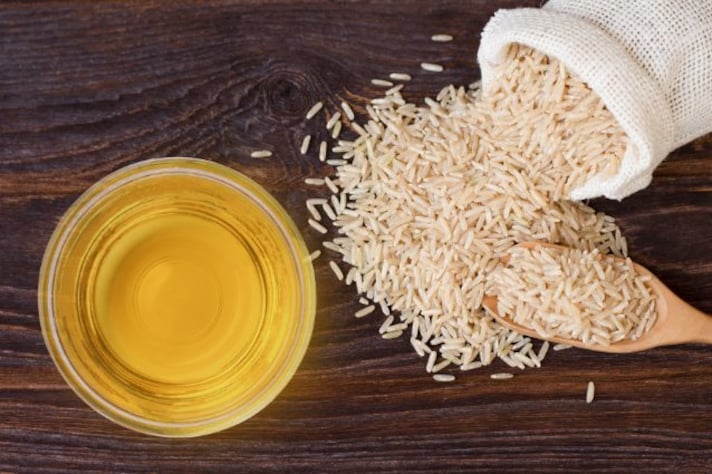How to Use Rice Bran Oil In The Kitchen (And Its Many Benefits)
Move over, olive oil! Rice bran oil is stepping up as a versatile cooking oil packed with benefits. But what makes it so special, and how does it compare to other popular oils? Here’s everything you need to know about this healthy kitchen staple.

Rice bran oil is extracted from the hard outer layer, or bran, of rice grains. Known for its high smoke point and neutral taste, this oil is incredibly versatile and popular in Asian cuisine, especially for frying and stir-frying. What’s more, rice bran oil is rich in nutrients like Vitamin E and antioxidants that can contribute to heart health and skin health, making it a popular choice in both cooking and cosmetics.
Why Choose Rice Bran Oil?
Rice bran oil isn’t just a frying oil – it’s a health booster too. Its unique combination of healthy fats, antioxidants, and natural anti-inflammatories makes it a strong contender in the cooking oil market:
Rice bran oil contains a balanced ratio of monounsaturated, polyunsaturated, and saturated fats, which support cardiovascular health. Compounds like oryzanol help reduce cholesterol and may offer protection against cell damage. With a smoke point of around 232°C (450°F), rice bran oil is ideal for high-heat cooking without breaking down, which makes it safer and reduces the chance of releasing harmful compounds.

How to Use Rice Bran Oil in Cooking
Rice bran oil’s light, neutral flavor makes it versatile enough for almost any recipe. Here are a few ways to make the most of it:
- High-heat cooking: Its high smoke point makes rice bran oil perfect for frying, stir-frying, and grilling.
- Salad dressings and marinades: Thanks to its mild taste, rice bran oil is a great base for dressings, adding a light texture without overpowering other flavors.
- Baking substitute: Use rice bran oil as a swap for butter or other oils in baking to keep recipes light and moist.
Rice Bran Oil vs. Other Oils
How does rice bran oil stack up against other popular oils like olive, canola, and sunflower oil?
While olive oil is rich in monounsaturated fats, it has a lower smoke point, making it better for low to medium-heat cooking. Rice bran oil is a more versatile option for high-heat dishes. Canola oil is also mild and has a high smoke point, but rice bran oil contains more antioxidants, which some find appealing for health benefits. Sunflower oil has a similar high smoke point, but rice bran oil offers a more balanced fat profile and additional nutrients.

With its high smoke point, mild taste, and heart-friendly benefits, rice bran oil deserves a spot in your kitchen – a healthy swap that works in almost any dish!
;Resize,width=767;)
;Resize,width=712;)
;Resize,width=712;)
;Resize,width=712;)
